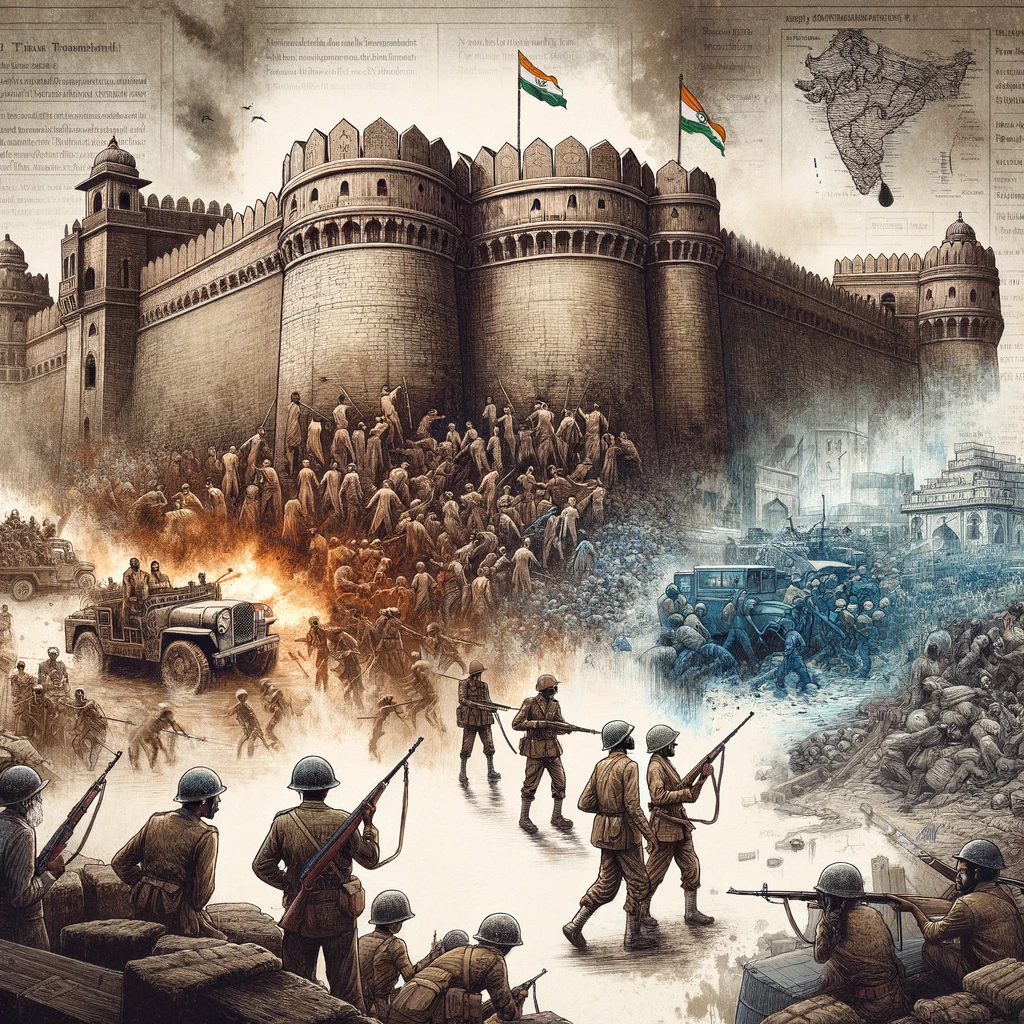This-Day 1 May 2024 Wednesday
This-Day 1 May: Sam Vikram: Purnimanta Mass: Vaisakha Paksha: Tithi: Krishna Paksha Ashtami [ Tithi Kshaya ] – May 01 05:46 AM – May 02 04:01 AM, let us have a quick look of the events and anniversaries of India and the world
 Panchang /
Panchang /
Shaka Samvat: 1946
Purnimanta: Vaisakha
Tithi: Krishna Paksha Ashtami [ Tithi Kshaya ] – May 01 05:46 AM – May 02 04:01 AM
This-Day
Festivals Today: Kaalaashtamee, Budhaashtamee Vrat, Mahaaraashtr Divas, Maee Divas
Festials Tomorrow:
Day Today:
Day Tomorrow: World Tuna Day (A/RES/71/124)
Yoga:
Subha – Apr 30 10:24 PM – May 01 08:01 PM
Sukla – May 01 08:01 PM – May 02 05:19 PM
Karana:
Bava – Apr 30 06:29 PM – May 01 05:46 AM
Balava – May 01 05:46 AM – May 01 04:57 PM
Kaulava – May 01 04:57 PM – May 02 04:01 AM
Sunrise: 5:44
Sunset: 18:52
Moonrise: 1:06
Moonset: 12:45
 Auspicious Time
Auspicious Time
Abhijit Muhurat – Nil
Amrit Kaal – 05:14 PM – 06:46 PM
Brahma Muhurat – 04:07 AM – 04:55 AM
![]() Inauspicious Time
Inauspicious Time
Rahu – 12:18 PM – 1:56 PM
Yamaganda – 7:22 AM – 9:01 AM
Gulika – 10:39 AM – 12:18 PM
Dur Muhurat – 11:51 AM – 12:44 PM
Varjyam – 07:59 AM – 09:31 AM
Information Source: https://www.prokerala.com/
Today / आज
Independence Fighters sacrificed- At Least: 1
Major Historical Events This-Day 1 May
May 1740: Construction of Nedumkotta
Event: Construction of Nedumkotta or Travancore Lines commenced.
Context: This defensive barrier was erected to protect against invasions from Mysore during Tipu Sultan’s rule.
Location: Travancore, present-day Kerala, India.
May 1762: Battle of Harnaulgarh
Event: Sikh Misls under Jassa Singh Ahluwalia defeated the Durrani Empire.
Significance: Demonstrates the military strength and influence of the Sikh Misls.
May 1790: Battle of Nedumkotta
Event: Kingdom of Travancore defeats the Kingdom of Mysore.
Outcome: This victory demonstrated the effectiveness of the Nedumkotta fortifications.
May 1999: Kargil War Begins
Event: Indian Army starts operations to evict Pakistani forces occupying positions in Kargil.
Location: Kargil district, Kashmir.
Significance: Marks the beginning of the conflict known as the Kargil War.
May 2007: Hyderabad Mosque Bombing
Event: Bomb explosion in Hyderabad’s main mosque kills at least nine.
Aftermath: The incident triggers rioting, resulting in additional fatalities.
History in Brief This-Day
May 2009: Indian General Election
Event: General election victory strengthens the Congress-led alliance under PM Manmohan Singh.
Outcome: The alliance secures a strong parliamentary presence, close to an absolute majority.
Chennai Train Bombing – Terrorist Attack:
On May 1, 2014, a terrorist attack in Chennai, Tamil Nadu, resulted in 1 death and 14 injuries.
May 2000: India’s Billionth Citizen
Event: India celebrates the birth of its billionth citizen.
Implications: Signifies India’s significant population growth and its impact on national policies.
Hyderabad Massacres – Tragic Violence: On May 1, 1905, the Hyderabad Massacres resulted in the deaths of 27,000–40,000 civilians in Hyderabad State, stemming from backlash against Muslims and Hindus by Razakars after India’s takeover of Hyderabad.
1960 U-2 Incident – International Crisis: On May 1, 1960, the U-2 incident, involving an American spy plane shot down over Soviet airspace, significantly worsened relations between the superpowers.
Marad Massacre – Communal Conflict: The Marad massacre on May 1, 2003, in Kerala, India, resulted in 8 deaths and 58 injuries, marking a severe instance of communal violence.
Christopher Columbus – Historical Proposal: On May 1, 1486, Christopher Columbus proposed his plan to search for a western route to India to Spanish monarch, Isabella I. Full support was granted three years later, in 1489.
Act of Union – Formation of Great Britain: On May 1, 1707, Great Britain was formed from a union between England and Scotland, incorporating Wales which had been part of England since the 1500s.
Indian Mine Laws – Legislative Development: On May 1, 1907, the Indian Mine Laws were enacted, offering concessions in the Dutch East Indies, shaping the mining industry’s framework.
Empire State Building – Architectural Marvel: The Empire State Building was completed on May 1, 1931, becoming a defining symbol of New York City.
First Taiwan Strait Crisis – Historical Resolution: The First Taiwan Strait Crisis concluded on May 1, 1955, marking an end to the intense military conflict between the Republic of China and the People’s Republic of China.
National Film Awards, India – Cinematic Achievement: On May 1, 1960, “Apur Sansar” won the Golden Lotus at the 7th National Film Awards in India.
European Union – Largest Expansion: On May 1, 2004, the European Union saw its largest expansion, welcoming eight former Communist nations and two Mediterranean countries, significantly increasing its membership to include 450 million persons.
India’s Regional Reorganization – Formation of States: On May 1, 1960, India’s Bombay state was reorganized into Gujarat and Maharashtra.
U-2 Incident – Cold War Escalation: An American U-2 spy plane was shot down over Sverdlovsk in Russia on May 1, 1960, escalating Cold War tensions.
Assam Violence – Terrorist Attack: On May 1, 2014, terrorist violence in Assam resulted in 33 deaths.
Gadchiroli Naxal Bombing – Terrorist Attack: On May 1, 2019, a terrorist attack in Gadchiroli, Maharashtra, killed 16 people.
Kyrgyzstan-Tajikistan Border Clash – Conflict Conclusion: A border clash between Kyrgyzstan and Tajikistan concluded on May 1, 2021, after causing 55 deaths.
Anniversaries This-Day
Balraj Sahni – Renowned Actor: Celebrating the birth of Balraj Sahni on May 1, 1913.
Manna Dey – Legendary Singer and Composer: Born on May 1, 1919, in Kolkata, Manna Dey was a celebrated Indian singer and composer.
Ajith Kumar – Multifaceted Talent: Ajith Kumar, known for his work in racing and acting, was born on May 1, 1971, in Secunderabad.
Anushka Sharma – Bollywood Icon: Anushka Sharma, a leading actress in Indian cinema, was born on May 1, 1988, in Ayodhya, Uttar Pradesh.
Ayrton Senna – Formula One Legend: Remembering Ayrton Senna, who tragically died on May 1, 1994, revered as one of the greatest Formula One drivers.
Manna Dey – Celebrated Singer: Manna Dey, an iconic Indian singer and composer, was born on May 1, 1919. His contribution to Indian music spans several decades, enriching the cultural heritage.
Miss Elizabeth – Wrestling Icon: Commemorating the life of Miss Elizabeth, a wrestling superstar, who passed away on May 1, 2003.
Independence Struggle Events on This-Day 1 May
The history of India’s struggle for independence is marked by the sacrifices and heroics of numerous freedom fighters. Many significant events and lives are commemorated on the 1st of May, showcasing the breadth and depth of the movement against British colonial rule. This essay explores key events and figures whose actions on this day shaped the course of India’s fight for freedom.
Syed Alvi: A Soldier’s Sacrifice
Syed Alvi, a valiant soldier from Gujranwala (now in Pakistan), joined the Indian National Army in 1942. As a Naik in Unit 50, he fought against the Allied forces on the Burma front. On 1 May 1944, he lost his life in a fierce encounter with the enemy, exemplifying the ultimate sacrifice in the quest for India’s independence.
Keshav Amruta Kolugade: Endurance and Sacrifice
Born on 1 May 1895 in Maharashtra, Keshav Amruta Kolugade was an active participant in the “Quit India” movement of 1942. Arrested by the British in November of that year, he faced brutal treatment and severe torture in detention, leading to his death shortly after completing three months of a six-month sentence. His endurance and sacrifice are a testament to the spirit of the movement.
Rattan Singh Rakkar: From Soldier to Freedom Fighter
Rattan Singh Rakkar, born in 1889 in Punjab, initially served in the British-Indian Army. Inspired by Sikh movements, he left the army and joined the Babbar Akali movement, a militant group fighting for independence. After various imprisonments and daring escapes, Singh was ultimately killed in a police encounter in 1932. His transition from a soldier to a revolutionary highlights the diverse backgrounds of those who joined the struggle.
Rasila and Ganesh Chandra Chakrabartti: Fighters Behind Bars
Rasila, born on 1 May 1923, and Ganesh Chandra Chakrabartti, born in 1916, both endured imprisonment due to their involvement in the independence struggle. Rasila, a former British-Indian Army soldier, joined the INA and was captured and imprisoned in various jails across Southeast Asia, dying in captivity in 1943. Chakrabartti, a member of the Anushilan Samiti, was repeatedly detained and ultimately died of typhoid in 1938 while under restrictive domicile. Their stories reflect the harsh realities faced by political prisoners during this period.
Banamali Ghasi and Podiami Adama: Health Crisis in Detention
Both Banamali Ghasi and Podiami Adama were arrested during the “Quit India” movement and held in deplorable conditions in the Nowrangpur Sub-Jail. Ghasi died of heart failure in 1943 after contracting malaria, while Adama suffered from severe anaemia and died in 1945. Their deaths underscore the severe conditions and health crises political prisoners endured.
Prafulla Chaki: A Revolutionary’s Final Stand
Prafulla Chaki, born in 1888, was part of a planned assassination against a British judge which tragically killed an innocent instead. Chased by police on 1 May 1908, he chose to end his own life rather than be captured. His story is one of radical commitment and tragic consequences in the fight against colonial rule.
These narratives from “This-day 1 May” in history illustrate the profound commitment and diverse experiences of individuals in India’s independence struggle. Their actions and sacrifices contributed significantly to the eventual success of the movement, highlighting the complex and multifaceted nature of the fight against colonial oppression.
Feature Image: The image is a detailed digital artwork that creates a historical collage of significant events in India. It features a fortified wall representing Nedumkotta at the forefront, symbolizing its role as a defensive structure. The scene is filled with soldiers engaged in combat, depicting the Kargil War, illustrating the intense military action. A chaotic crowd scene in the background represents the Hyderabad Massacres, capturing the turmoil and distress of the civilians. Overlaid on this dynamic scene is a faded map of India, providing a geographical and historical context to the events. The artwork is rendered in a realistic yet slightly artistic style, using a somber color palette to convey the serious nature of these historical moments. (Click here to see image)
Online Resources
https://pib.gov.in/amritmahotsav/dictionary_book.aspx
